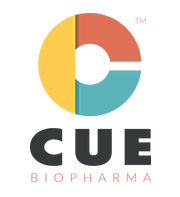预约演示
更新于:2026-02-07
CUE-501
更新于:2026-02-07
概要
基本信息
非在研机构- |
最高研发阶段临床前 |
首次获批日期- |
最高研发阶段(中国)- |
特殊审评- |
关联
100 项与 CUE-501 相关的临床结果
登录后查看更多信息
100 项与 CUE-501 相关的转化医学
登录后查看更多信息
100 项与 CUE-501 相关的专利(医药)
登录后查看更多信息
25
项与 CUE-501 相关的新闻(医药)2026-01-28
·菲常医讯
Highlights
高额交易突破:先声药业与勃林格殷格翰达成合作,潜在里程碑付款高达10.58亿欧元,彰显国产双抗全球竞争力。
双靶点协同创新:TL1A/IL23p19双抗SIM0709通过阻断IBD核心通路,展现“同类首创”潜力。
自免领域布局深化:此次合作是先声药业第5个出海的自研早研项目,累计潜在交易额超46亿美元。
全球市场潜力:TL1A靶点被默沙东、罗氏等MNC重金押注,IBD领域存在巨大未满足临床需求。
2026年1月27日,先声药业(2096.HK)与德国制药巨头勃林格殷格翰共同宣布,就临床前阶段双特异性抗体SIM0709达成许可与合作协议。勃林格殷格翰获得该药在大中华区以外的全球权益,先声药业可获得首付款及最高10.58亿欧元的里程碑付款及区域特许权使用费。
此役是先声药业在自身免疫领域的第二款创新药出海项目,也是其第5个实现海外授权的早研管线,标志着中国创新药国际化步伐再提速。
药物机制:双靶点协同破局IBD治疗瓶颈
SIM0709是一种长效人源化双特异性抗体,可同时靶向TL1A(肿瘤坏死因子样细胞因子1A)和IL-23p19(白介素23亚基)。这两种靶点分别对应IBD发病机制中的两大关键通路:
TL1A:放大炎症反应并促进纤维化,与IBD病程密切相关,全球尚无该靶点药物上市;
IL-23p19:已有多款单抗(如礼来Omvoh、强生古塞奇尤单抗)获批用于IBD,验证其临床价值。
临床前研究显示,SIM0709在体外原代细胞和动物模型中均表现出显著协同效应,疗效优于单药联用,且具备皮下给药、半衰期长等优势,有望提升患者依从性。预计2026年上半年进入临床阶段。
IBD赛道为何吸引MNC重金布局?
全球有超过300万炎症性肠病患者,该疾病需终身治疗,易导致住院、手术,且现有疗法无法完全逆转病情。这一巨大未满足需求推动IBD成为跨国药企竞逐的焦点。
近年来,TL1A靶点交易频现天价:
默沙东以108亿美元收购Prometheus,获得TL1A单抗tulisokibart;
罗氏、赛诺菲分别以超70亿、15亿美元引进TL1A管线;
艾伯维2024年斥资15.6亿美元引进明济生物临床前TL1A单抗。
双抗领域,辉瑞与罗氏合作开发PF-07261271(抗p40/TL1A双抗),已进入Ⅰ期临床。SIM0709的差异化设计有望在激烈竞争中开辟新路径。
先声药业:从肿瘤到自免的国际化战略
先声药业近年持续加码创新,研发投入累计约90亿元,创新药收入占比从2020年的45%升至2025年上半年的77%。其肿瘤板块已实现多款产品商业化,并逐步拓展至自身免疫领域:
2022年,IL-2突变融合蛋白SIM0278授权给西班牙Almirall,潜在交易额4.92亿美元;
2025年,靶向LRRC15的ADC新药SIM0613授权益普生,首付款达10.6亿美元。
先声药业创新药管线布局
自免管线中,抗IL-4Rα单抗乐德奇拜单抗已提交上市申请,IL-4Rα ADC、IRAK4 PROTAC等候选药物亦处于IND前阶段,展现多元技术布局。
自免双抗成MNC新战场
双抗药物在肿瘤领域已成熟落地,但自免应用仍处早期。勃林格殷格翰此前已通过合作引入CUE-501(自免双抗),强生、赛诺菲等亦通过收购加码布局:
CD3双抗:默沙东、罗氏探索其在自免疾病的T细胞调控潜力;
TSLP双抗:赛诺菲、辉瑞跟进,参照TSLP单抗Tezepelumab(年销售破10亿美元)的成功路径;
强生策略:收购Proteologix获得IL-13/TSLP、IL-13/IL-22双抗,覆盖特应性皮炎与哮喘。
自免疾病患者基数大、靶点多样,双抗有望通过多通路干预突破疗效瓶颈,成为MNC未来增长的关键引擎。
总结
先声药业与勃林格殷格翰的合作,不仅凸显了国产双抗技术的全球认可度,更反映了IBD治疗领域对创新疗法的迫切需求。SIM0709凭借双靶点协同优势和长效设计,有望为患者提供更优治疗方案。随着先声药业在肿瘤、自免双轮驱动下加速国际化,中国创新药企正逐步成为全球医药研发的重要力量。
(免责声明:部分文字及图片来源于网络,仅供学习、交流使用,版权归原作者所有;如有问题请及时联系我们以做处理)
并购申请上市引进/卖出
2025-11-11
·津津药道
在众多跨国药企中,勃林格殷格翰(Boehringer Ingelheim)是一种特立独行般的存在(表1)。其名字来源于创始人阿尔伯特·勃林格(Albert Boehringer)以及公司创立地德国殷格翰(Ingelheim)。
表1. 全球MNC排名(基于2024年销售)
1、坚持不上市
1885年,阿尔伯特·勃林格在德国殷格翰收购了一家酒石酸化工厂,成立勃林格殷格翰公司,最初专注于化工产品生产。1893年,公司意外发现乳酸工业化生产工艺,成为“生物技术”工业应用的先驱之一。1917年,公司成立首个科研部门,标志着向制药领域的转型。
二战期间,公司生产镇痛药和抗生素用于治疗战争伤员。战后,公司加速创新,推出多款突破性药物,如治疗哮喘的Aludrin(1941年)、止痛药Thomapyrin(1946年)、胃痉挛药物Buscopan(1950年)等。1948年,公司在维也纳设立首家海外子公司,开启全球化进程。
1955年,公司收购辉瑞的兽药部门,成立动物医药部门。1981年,公司重组运营架构,成立勃林格殷格翰国际有限公司,成为全球性企业。这一时期,公司业务覆盖人用药品、动物保健和生物制药合同生产(CDMO)三大领域。
20世纪90年代至今,公司持续推出创新药物,如治疗慢性阻塞性肺病的Spiriva(2002年)、抗凝血药Pradaxa(2008年)、抗癌药物阿法替尼(2013年)等。2017年,公司收购赛诺菲旗下动物保健业务,成为全球第二大动物保健企业。近年来,公司聚焦肿瘤、代谢、呼吸等领域的新药研发,同时推动数字化医疗、基因疗法等前沿技术的应用。
2024年,公司总营业收入为268亿欧元(约合290亿美元)。其中,人用药品业务收入达219亿欧元,占总营收的81.8%,是主要增长动力;动物健康业务收入47亿欧元,占比17.7%。2024年研发投入为62亿欧元,占公司净销售额的23.2%。
勃林格殷格翰坚持不上市,是全球最大的私有制药企业,由勃林格家族和冯·鲍巴克家族控股。家族成员长期掌握公司实权,不上市可确保家族对企业的完全控制权,避免外部资本干预战略决策,维持家族企业的独立性和长期发展规划。公司通过自身积累资金支持研发和扩张,降低了对外部融资的依赖,减少了债务风险。
2、“贱卖”超级重磅药物
很多人不知道,目前艾伯维管线上用于治疗中重度斑块型银屑病、银屑病关节炎、克罗恩病等自身免疫性疾病的超级重磅产品IL-23单抗Skyrizi(Risankizumab),其实是从勃林格殷格翰引进的。2024年,Skyrizi销售达117亿美元,2025年预期销售达173亿美元。
2016年3月,艾伯维以首付5.95亿美元、总额16亿美元的价格引进勃林格殷格翰已进入3期临床的BI 655066(Risankizumab),并成功于2019年4月获FDA批准上市。
不知道勃林格殷格翰高层在看到Risankizumab如今的销售是否悔得肠子都青了?但事实是,如果勃林格殷格翰不跟艾伯维合作,单凭其自身商业化能力,Risankizumab恐怕很难成为超级重磅药物。
3、项目引进
与大多数MNC不同,勃林格殷格翰通过BD交易引进项目/技术不仅数量较少,金额也较低。
但在B细胞清除后免疫重置治疗自免疾病的热潮下,勃林格殷格翰也不甘落后,在今年接连引进两款临床前TCE,分别是2025年4月由CUE Biopharma引进CUE-501(CD19/HLA)及2025年11月从CDR-Life引进CDR111(CD3/CD19/BCMA)。
其中CUE-501已在下一代TCE之病毒特异性T细胞详述,想法很新颖,但尚未得到临床验证。
CDR111采用CDR-Life三特异性抗体的T细胞接合器(M-gager),是一种抗体片断型多抗Format(图1)。
图1. CDR111结构示意图
这种Format的分子量约为100kDa,比传统IgG的150kDa小,可能在组织穿透方面具有一定优势,但比起Cullinan Therapeutics的处于临床1期的VHH片段型三抗CLN-978(CD3/CD19/HSA)的65kDa分子量大了不少,两者在临床上的比较值得期待。
由于CDR111不含Fc,半衰期可能是其短板。但B细胞清除后免疫重置需要抗体具备多长的半衰期、什么样的给药频率,仍需要临床上的进一步探索。
其实,勃林格殷格翰在TCE领域已有一定积累,目前在管线上有CD3/DLL3、CD3/B7H6、CD137/FAP(图2)三款双抗在开展针对实体瘤的临床试验。
图2. 勃林格殷格翰CD3/DLL3及CD137/FAP结构示意图
勃林格殷格翰能否通过外部引进项目/技术结合自身经验在TCE治疗自免疾病上实现弯道超车?让我们拭目以待。
并购基因疗法引进/卖出临床3期申请上市
2025-04-30
Patients can engage in gamified versions of objective behavioural activities on a tablet. Credit: © 2025 Department of Psychiatry, Warneford Hospital, Oxford, OX3 7JX.
Boehringer Ingelheim, the University of Oxford and Cumulus Neuroscience have launched a study to monitor brain activity in individuals with borderline personality disorder (BPD) using new technology.
The study will offer insights into the daily experiences of individuals with psychiatric disorders.
It aims to assess the acceptability of new technology designed to quantify the mood, behaviour and activity of the brain, and aid new therapeutic research and development.
The NeuLogiq neuroassessment platform from Cumulus will be leveraged in the BPD patient population for the first time.
It allows for brain function tracking over time, both in clinical settings and in patients’ homes.
The NeuLogiq headset enables individuals to engage in gamified versions of objective behavioural activities on a tablet.
GlobalData Strategic Intelligence
US Tariffs are shifting - will you react or anticipate?
Don’t let policy changes catch you off guard. Stay proactive with real-time data and expert analysis.
By GlobalData
Learn more about Strategic Intelligence
The headset measures electroencephalogram (EEG) brain wave patterns that are accurately synchronised with the activities.
The goal is to capture data that offers a clearer understanding of the activity within the brain’s networks.
The Department of Psychiatry at the University of Oxford will carry out the study at Warneford Hospital, gathering frequent EEG and behavioural evaluations and remote metrics of mood and activity.
The study targets young adults aged 18 to 35 years and aims to evaluate the Cumulus platform’s feasibility in this population to offer a dataset for in-depth analysis of brain activity and behaviour in BPD.
30 BPD subjects and 20 subjects who have not been diagnosed with mental health disorders will be recruited.
Boehringer Ingelheim neuroscience and mental health global head and senior vice-president Dr Hugh Marston stated: “If this platform is successfully validated in this patient population, it could be a game-changer for studies investigating novel precision psychiatry treatments. It could help us identify biomarkers for stratification and provide a rich dataset for reverse translation.”
Boehringer recently entered a
strategic research partnership with
Cue Biopharma to develop and commercialise Cue’s CUE-501 product candidate for autoimmune conditions.
100 项与 CUE-501 相关的药物交易
登录后查看更多信息
研发状态
10 条进展最快的记录, 后查看更多信息
登录
| 适应症 | 最高研发状态 | 国家/地区 | 公司 | 日期 |
|---|---|---|---|---|
| 自身免疫性疾病 | 临床前 | 美国 | 2024-05-27 | |
| 炎症 | 临床前 | 美国 | 2024-05-27 |
登录后查看更多信息
临床结果
临床结果
适应症
分期
评价
查看全部结果
| 研究 | 分期 | 人群特征 | 评价人数 | 分组 | 结果 | 评价 | 发布日期 |
|---|
No Data | |||||||
登录后查看更多信息
转化医学
使用我们的转化医学数据加速您的研究。
登录
或

药物交易
使用我们的药物交易数据加速您的研究。
登录
或

核心专利
使用我们的核心专利数据促进您的研究。
登录
或

临床分析
紧跟全球注册中心的最新临床试验。
登录
或

批准
利用最新的监管批准信息加速您的研究。
登录
或

生物类似药
生物类似药在不同国家/地区的竞争态势。请注意临床1/2期并入临床2期,临床2/3期并入临床3期
登录
或

特殊审评
只需点击几下即可了解关键药物信息。
登录
或

生物医药百科问答
全新生物医药AI Agent 覆盖科研全链路,让突破性发现快人一步
立即开始免费试用!
智慧芽新药情报库是智慧芽专为生命科学人士构建的基于AI的创新药情报平台,助您全方位提升您的研发与决策效率。
立即开始数据试用!
智慧芽新药库数据也通过智慧芽数据服务平台,以API或者数据包形式对外开放,助您更加充分利用智慧芽新药情报信息。
生物序列数据库
生物药研发创新
免费使用
化学结构数据库
小分子化药研发创新
免费使用

